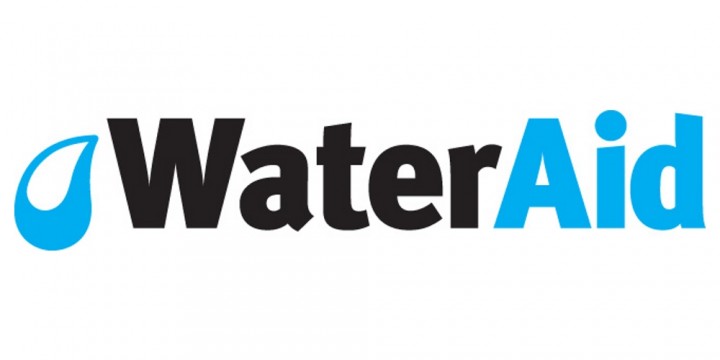Healthy Start: Global advocacy project on integration of WASH with Health and Nutrition for improved baby and child health Advocating for access to water, sanitation, and hygiene promotion to be integrated into health policy and delivery locally, nationally and internationally
WaterAid’s four-year advocacy priority (2015-2019) focused on improving the health and nutrition of newborn babies and children. We are doing this by advocating for access to water, sanitation, and hygiene promotion to be integrated into health policy and delivery locally, nationally and internationally.
We are working with healthcare professionals and decision makers to act on evidence of the immense benefits of WASH for health (in health facilities and at home), and advocating for new and existing child health and nutrition policies and programmes to include and deliver WASH within a strengthened health system – without which,
improved health outcomes for children are not sustainable.
We are working closely with ministries including health, finance and education, healthcare professionals and associations, academics, global networks, civil society, community workers and groups on the frontline of efforts to improve health.
With our health and WASH sector allies we are identifying key child health strategies, plans, programmes and initiatives to advocate for the inclusion, delivery and financing of WASH interventions. We are also holding governments to account for commitments made to improving child health outcomes, and highlighting the importance of increased and sustainable WASH services in doing this.
At the same time, we are engaging in programme work that demonstrates integrated or coordinated WASH and health approaches. Examples of such work includes assessing and responding to WASH needs of health centres and working with health extension programmes to deliver community-based hygiene promotion. This work
helps us define and strengthen our advocacy actions.
Mission
Advocacy at the local, national and international level to achieve the following objectives: 1. National governments to make water, sanitation and hygiene services part of all plans to reduce infant mortality and improve nutrition. 2. Every healthcare facility to have clean running water, safe, separate and accessible toilets for men and women, and functional sinks with soap in all treatment and birthing rooms. 3. Healthcare workers to commit to practising and promoting good hygiene. 4. Monitoring and assessment of progress towards universal health coverage to include data on the availability of water, sanitation and hygiene services in healthcare facilities and households. 5. Joint cross-sector action to achieve the Sustainable Development Goals, recognising that achieving Global Goal 6 – water and sanitation for all by 2030 – will be fundamental to ending malnutrition (Goal 2) and to ending preventable newborn and child deaths and achieving Universal Health Coverage (under Goal 3).Results
Examples of project success to date: 1) Political Will In Cambodia, the Deputy Prime Minister recently presided over the country’s first ever national conference on WASH and nutrition. In Mali, the WaterAid team has used 'shock tactics' – filming the poor state of hospitals without functioning toilets and taps even close to the parliament building – to secure written commitments from MPs. 2) Commitments to policy change WaterAid Madagascar secured a commitment from the National Office of Nutrition to ensure integration of WASH in the update of the national nutrition action plan. 3) Technical capacity-building WaterAid teams are working with the health sector and health workers to strengthen knowledge and skills about the crucial importance of WASH to quality healthcare, infection prevention and control, and safe births. In Tanzania, this has resulted in Zanzibar’s Ministry of Health launching a 'Water, Sanitation and Hygiene in Healthcare Settings Facilitators Guide', supported by training for frontline healthcare workers. 4) Public mobilisation Sometimes, public pressure is vital to forcing those in power to shift from the status quo. In India, public launch events for Healthy Start across five cities, including one in Delhi attended by the Minister of Health, brought media and social media attention to the poor provision of WASH in many Indian healthcare facilities. 5) Partnerships beyond the WASH bubble From the maternal health experts The Soapbox Collaborative in Malawi, to the International Coalition for Advocacy on Nutrition (ICAN), and from Amref Health Africa in Tanzania to the new BabyWASH global coalition, we have focused on new ways of working and new people to work with. At the international level we have worked hard to be just as active in forums like the World Health Assembly and Women Deliver conference as we have in bringing new issues to our more traditional spaces like Stockholm World Water Week. 6) Shifting global governance International institutions are key in shaping norms and global standards, and, by doing so, setting expectations for governments to meet. We’ve seen substantial progress on this front, working closely with WHO to support the Global Action Plan on WASH in Healthcare Facilities, and helping to spark new collaboration between the global platforms for WASH and nutrition – the Sanitation and Water for All (SWA) partnership and the Scaling Up Nutrition (SUN) movement.External Website(s)
http://www.wateraid.org/policy-practice-and-advocacy/healthy-start
Answer questions about the project
Connie Benjamin
conniebenjamin@wateraid.org
Filter / Tags
Public awareness, advocacy and civil society engagement WASH and nutritionBehaviour changeHealth and hygieneGlobalEnabling environment and institutional strengtheningOther funding source or unspecifiedOtherPoliticians and local decision makersInternational NGO
Related Countries
Downloads
Healthy Start Advocacy Guide and Checklist
Type: application/pdf
Size: 0.49 MB
Healthy Start Introduction
Type: application/pdf
Size: 0.75 MB
Healthy Start Overview
Type: application/pdf
Size: 0.98 MB
Healthy Start WASH & Child Health
Type: application/pdf
Size: 0.23 MB
Healthy Start WASH & Child Nutrition
Type: application/pdf
Size: 0.55 MB
Healthy Start WASH & Newborn Health
Type: application/pdf
Size: 0.21 MB

Project location
